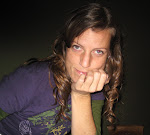 Three Cups of Tea is the account of Greg Mortenson's efforts to educate the uneducated in Pakistan & Afghanistan by constructing schools in the very poorest of areas. I have a few issues with the book, but nonetheless, it's an interesting story. Even more interesting is that his daughter, mentioned throughout the book, has recorded a song to go with the book. Enterprising to say the least.
Three Cups of Tea is the account of Greg Mortenson's efforts to educate the uneducated in Pakistan & Afghanistan by constructing schools in the very poorest of areas. I have a few issues with the book, but nonetheless, it's an interesting story. Even more interesting is that his daughter, mentioned throughout the book, has recorded a song to go with the book. Enterprising to say the least.This book has been passed on to Roxanne Doty.
I was discussing the book with my friend Debra over coffee this morning. She mentioned another organization that also aims to educate those in third world countries, Room to Read, headed by John Woods, formerly of Microsoft. Apparently this guy has even been on Oprah.
I wonder if they're hiring.

1 comment:
For those of you who are curious as to what my "issues" with the book were:
I really liked the book for certain things. It was really interesting to read about that part of the world, of which I know next to nothing. & it was interesting to read a little bit about what was happening in that part of the world just after the 9-11 attacks. All told, I liked it.
But there were a few things that could have been done better. For example, the book is basically a tribute to how great Greg Mortenson is. Not to say that he's not doing great things by bringing education to the far reaches of the earth. Education in my opinion is the most important thing in life. Knowledge is power. However, the book only told the positive side of the story. It made Mortenson out to be a god-send; it talked about how so many people think he's the best thing that ever happened to them. He seems to have a very infectious personality, so I don't doubt his popularity. But he also seems to be a very self-centered, impulsive person. He's even listed as the first author of the book, when it's obvious that he didn't write one word of it!
The book did not acknowledge that some of the things that he did were just stupid: Giving all of the materials for the first school, which he worked so hard to get & which were paid for by other people's donations, to a stranger who eventually robbed him of most of it. Entering into unknown territories in Pakistan without a guide, getting kidnapped & held as a political prisoner as a result. Deciding to stay in the area even after 9-11, when everyone else was getting out - & even crossing into Afghanistan shortly thereafter.
He married his wife after only 6 days of knowing her, & even though he was due back in Pakistan right afterward - people were counting on him to be there - he chose to put off his trip for a few weeks so he could spend the time with her. On the one hand, you could say that he valued his marriage & wanted to devote time to strengthening it. But really it just seems that he was doing whatever he wanted to do, regardless of the consequences. The book does not state this, but Mortenson seems to be a horrible husband & father. He leaves his wife & children for extended periods of time, without any assurance of when he will return. & this from the very start of the marriage.
On a more global note, the book talks about the wonderful things that Mortenson is doing for these impoverished people. But in whose opinion? The leader of the first village even said that they had lived hundreds of years without a school & had survived just fine. Also, the book doesn't discuss the possible impact that the changes may have on the villages. For example, how does building the bridge in the first village affect social interactions? Is there more contact with other villages, & therefore a better standard of living, or is it worse? How does bringing education to the women of the area affect social dynamics in a very male-centered society? Does it help the women to gain more power within the community, or does it only frustrate them because even though they have the knowledge, they still don't have the power.
I'm not saying that Mortenson isn't doing a good thing. I just think that the book Three Cups of Tea didn't give us the whole story, & many people may overlook that, or they may not even notice it in the first place.
Post a Comment